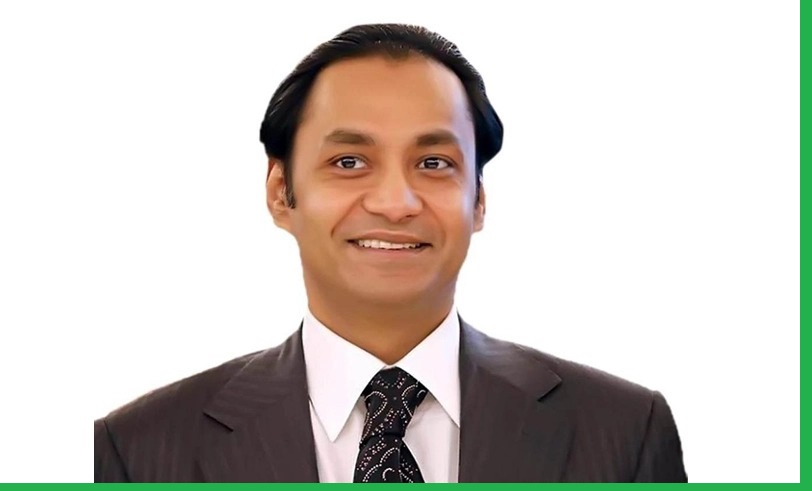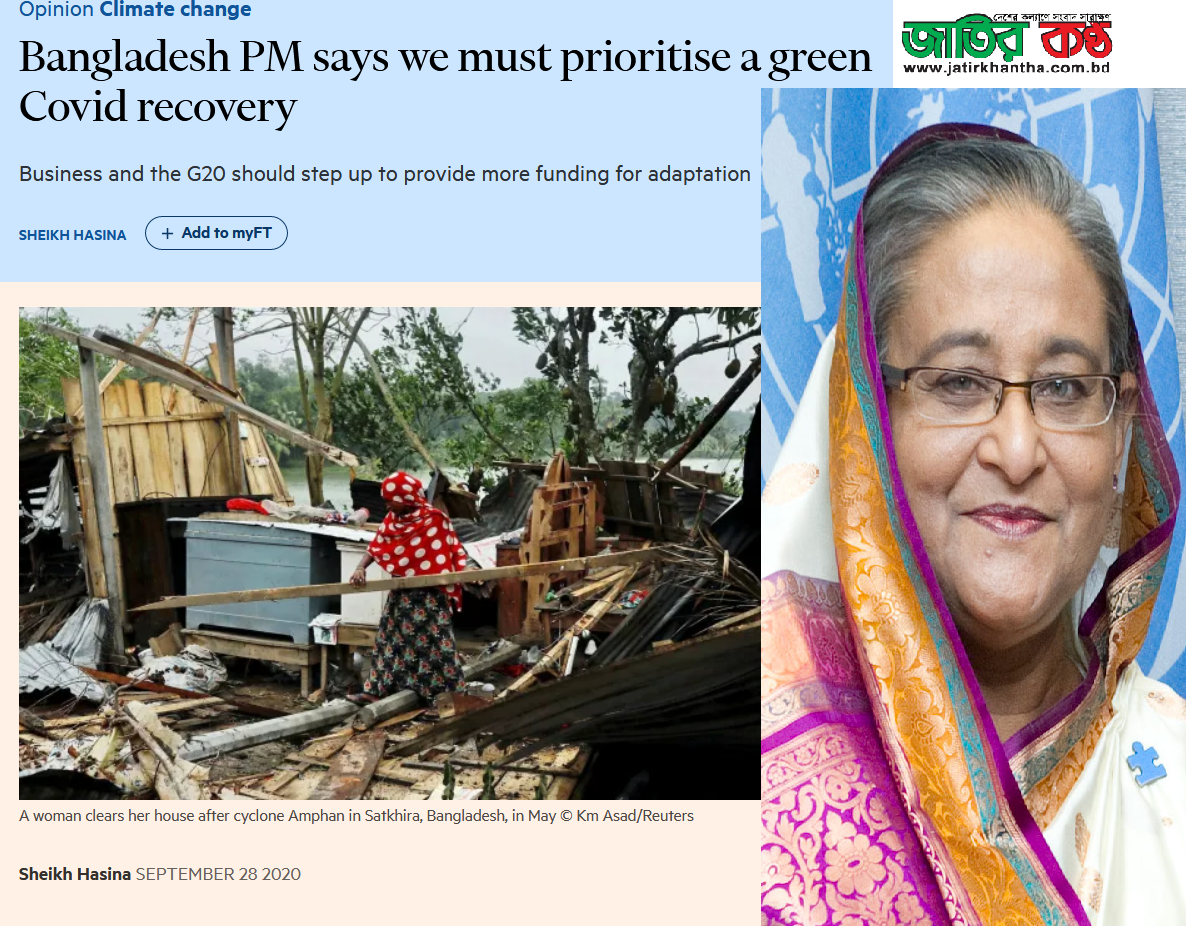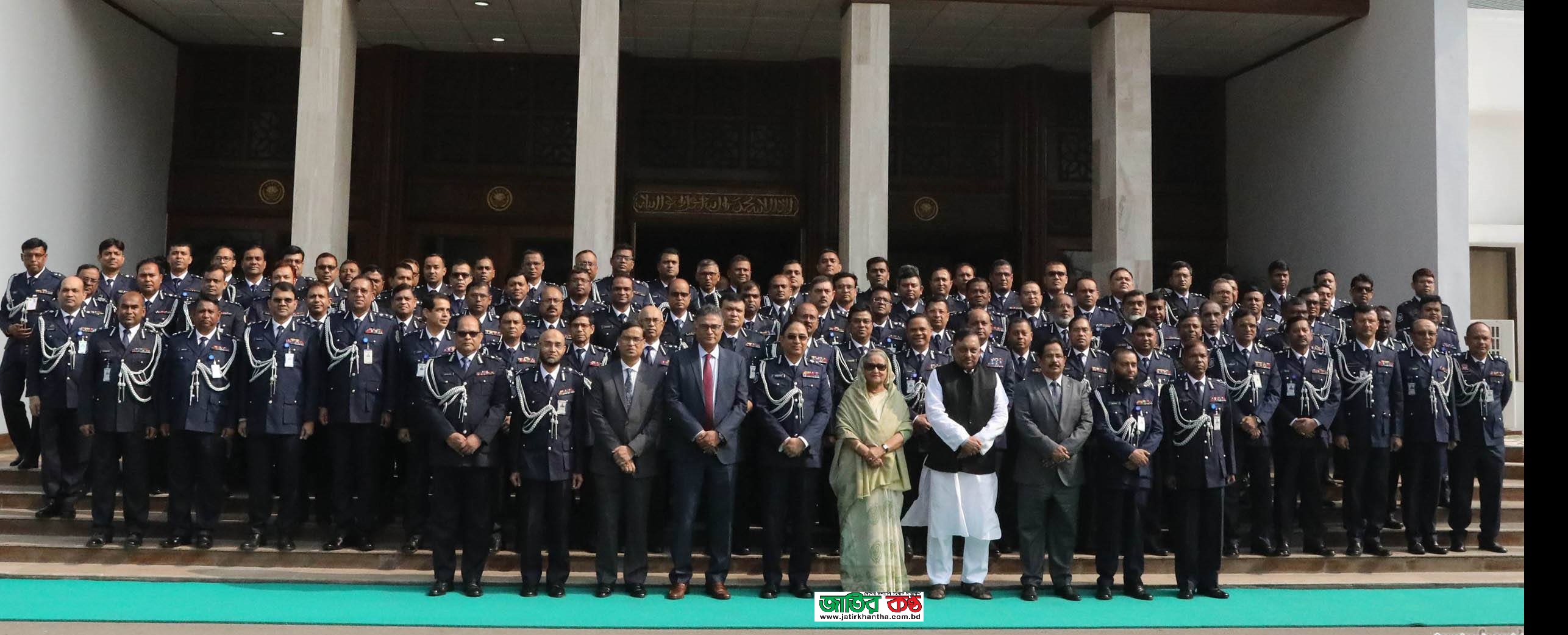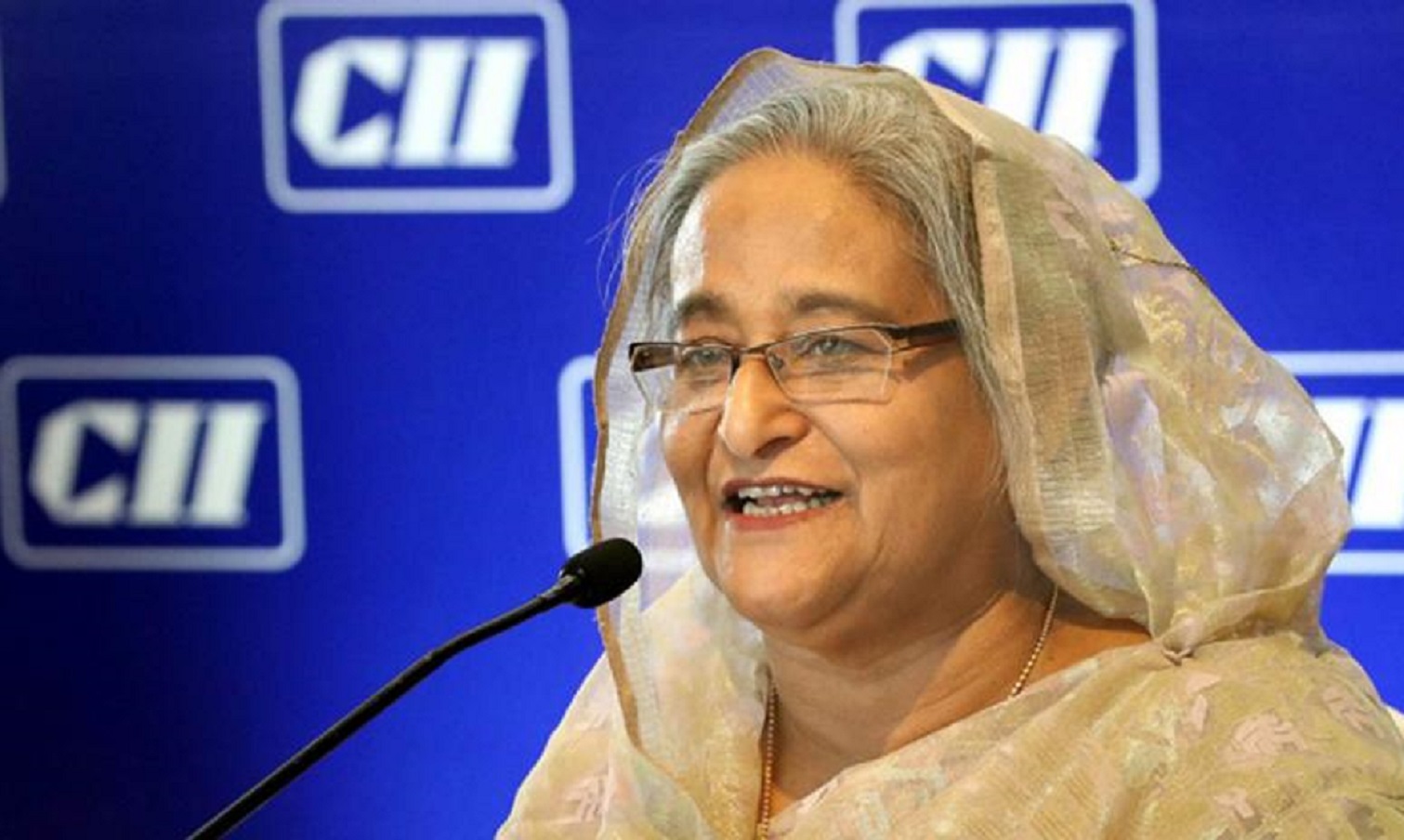`khaleda’s change of heart may help sustain peace in country’
 Anis Ahmed.Dhaka: Begum Khaleda Zia, Chairperson of Bangladesh Nationalist Party (BNP) and revered by her followers as an “uncompromising” leader, has started compromising herself –
Anis Ahmed.Dhaka: Begum Khaleda Zia, Chairperson of Bangladesh Nationalist Party (BNP) and revered by her followers as an “uncompromising” leader, has started compromising herself – 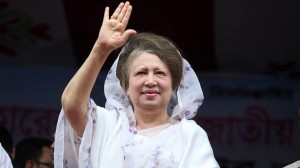 before she will probably compromise with others.
before she will probably compromise with others.Khaleda Zia let her change of heart be known at a meeting at her Gulshan office with a group of pro-BNP lawyers from Brahmanbaria on Saturday, where she said “we want a fair election under a neutral government,” clearly distancing herself from her previous demand for a national election under a “caretaker government” which was abolished years back as it’s incompatible with the constitution and so was declared void by the Supreme Court.
Khaleda’s softening on the stance of caretaker government is a good omen in the country’s viral politics amid the ruling Awami League’s claim of no let up or bowing down to Khaleda’s demands, which also include an early election (before it is due in 2019).Political analysts and neutral politicians feel the timing of the election may also be compromised if both Khaleda and Prime Minister Sheikh Hasina hold a ‘sincere, open’ dialogue to discuss ways to resolve outstanding issues.
It may be recalled that once Khaleda rejected Sheikh Hasina’s invitation for dialogue, which amounted to humiliating the PM. Hasina telephoned Khaleda but she responded in an “insulting” mood. Thus the standoff between the two top leaders hardened further and reached a virtually unbreakable situation.
Now that Khaleda Zia has chosen to give up her “caretaker government” philosophy she ought to change on other demands and work to restore conditions for a free and fair election. Khaleda now clearly feels the cracks under her feet as people denounced her party BNP and its staunch ally Jamaat-e-Islami for killing innocent people in violence while trying to enforce a countrywide transport shutdown. The victims were killed mostly in petrol bomb attacks on vehicles all over the country.
Khaleda Zia and Sheikh Hasina share the crux of politics in Bangladesh and have rotated in power since 1991 when the last military despot General Hossain Mohammad Ershad was ousted in a popular uprising. The two ladies played a key role in the anti-Ershad movement but since then they have fallen apart – to the extent that they don’t see each other’s face.
This set a ‘”permanent” divider between the chiefs of BNP and Awami League which cost the nation badly in terms of peace, stability and economy. Bangladesh is marching towards becoming a middle income country by 2021 but it could happen faster if Bangladesh had uninterrupted stability and peaceful conditions to attract business and investment.
The blame for “hampering” peace and obstructing economic activities squarely falls on Khaleda Zia as she led a “killing” mission assisted by radical Islamists who opposed Bangladesh’s independence and actively participated in a genocide alongside the Pakistani occupation army in 1971 in what was then East Pakistan, now Bangladesh.
Over the last one and half years, after the BNP and its allies had boycotted the parliamentary election held in January 2014, Khaleda’s party has been going through a series of debacles including challenges to her leadership and her failed attempt to restructure the party with “dedicated and loyal” leaders.
Her London-exiled son Tarique Rahman, senior Vice-Chairman of BNP, pulls strings on every move his mother makes. He suggested that she better get rid of the old, sick and inactive party leaders. This has caused a hidden commotion in BNP’s rank and file and Khaleda Zia has started feeling the heat. Now she is more intent to reform the party and recast its leadership through “compromise and cohesion” but is still appears unable to set the sail on the boat.
The BNP is also in trouble as many of its senior leaders and a large number of activists have been under arrest and in jail, accused of participating in or inciting violence and arson during and before the so-called non-stop transport blockade between January and April this year.
Those still out of the police net are hiding for fear of arrest and torture by the law enforcers. If Khaleda can give up her “uncompromising” posture and assume a role as a pro-active leader ready to cooperate with the ruling party and government in all national issues of common concern, it is believed that Bangladesh will move faster to achieve a solid economic and political identity in the world. If they decide to stay apart and keep accusing each other in all matters, the country is doomed to suffer more and democracy will remain in a pitiable state.
Khaleda Zia on Saturday also accused Sheikh Hasina, President of AL, of trying to establish one-party rule in the country by continuing a crackdown on opposition politicians. This is half truth and half lie. The BNP is a major party which ruled the country twice but its third attempt failed.
Khaleda will be a contender for power again and face Sheikh Hasina in the next election. For this, the BNP Chairperson needs to soften further – because many people dislike her present design of doing politics.
It is very heartening the the BNP chief has finally remembered the old saying “Nam Die Ki Hoi?” and given it a good run in her statement on Saturday. She said she wants an election under a neutral government – no matter whatever name it assumes.
Good luck to Khaleda Zia. Meanwhile, we hope the ruling party will also soften a bit to accomodate the BNP in national politics and let it play its due role for the welfare of people and the country.


